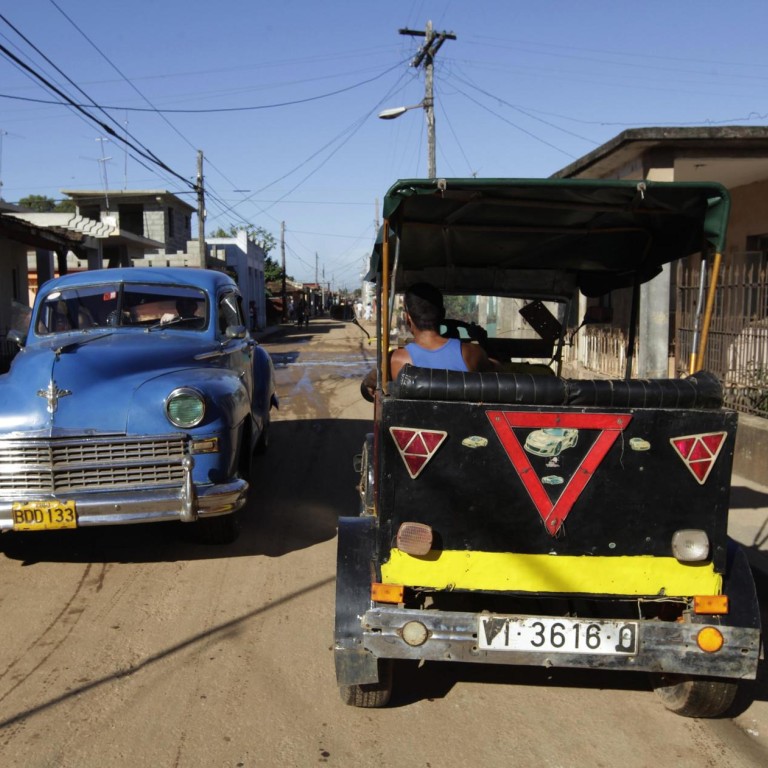
Cuban government lifts 50-year ban on unrestricted car imports
Havana ends rationing of new cars, another step in loosening control over purchases of property
Cuba announced yesterday it will allow unrestricted car imports for the first time in half a century, marking the end of an era that made icons of the island's vintage automobiles.
The official newspaper said the decision to allow cars to be imported for sale at market prices on the island was taken on Wednesday by Cuba's council of ministers.
It said the decision will gradually free up retail sales of all manner of vehicles - cars, vans, trucks and motorcycles - and ends the practice of granting some Cubans special permission to bring in vehicles as a privilege.
acknowledged the so-called "letters of authorisation" issued by the transport ministry had generated "resentment, dissatisfaction and, in not a few cases ... [were] a source of speculation and enrichment." Holders of the letters, however, will still be first in line to buy cars while the new system is phased in, said.
This eliminates the corruption that regulations and controls always spawn
The liberalising of car sales was one of more than 300 reforms put forward by President Raul Castro, who took over for his ailing brother Fidel in 2008, and approved in 2011 at a congress of the Communist Party.
The proposed changes put a greater emphasis on private initiative, which had been largely stifled under Cuba's Soviet-style system, and less government control over the sale and purchase of personal property such as homes and cars.
"It took me months to get a famous letter of authorisation to buy a car after going on two international missions, and I had to see a number of people," said Antonio, a doctor who asked that his last name not be used.
"Now it will be much easier to buy a car, and this eliminates the corruption that regulations and controls always spawn."
Bert Hoffmann, a Cuba expert at the German Institute of Global and Area Studies in Hamburg, said the measure was a positive step, but state prices would be high due to a lack of competition. "If cars are for private use, these high prices function as an understandable 'luxury tax'," he said.
Before September 2011, only cars that were in Cuba before the 1959 revolution could be freely bought and sold, which is why there are so many 1950s or older cars, most of them American-made, rumbling through Cuban streets.
